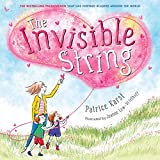5 Wonderful Books to Help Your Children Through the Pandemic
Posted by Bijal Shah on
At the start of the pandemic, as we started to make sense of what was happening, as the world began to shut down and global and local markets paused, as governments rapidly deployed armies of medical staff to cope with mass illness as a result of Covid-19, I looked at my toddlers - a 1.5 year old and a 3 year old. Did they really understand what was happening? They could sense that some sort of change was taking place - but did they really understand? Why we couldn't see family and friends, why we had to wear a mask, why we had to stay indoors and why we couldn't go to soft play? They would look at me with both curiousity and uncertainty - wondering when all of this was going to end, the same thoughts that me and my husband and adult friends wondered every day too.
This was where my Bibliotherapist hat came it, and I knew that for both children and adults alike, there was a lot of comfort, solace and wisdom to be found in literature. For those of you who are new to bibliotherapy, it is the use of literature as therapy.
Children’s bibliotherapy can sometimes be more complicated. Every child is different and what is demanded of individuals can be more nuanced — this is why the need for a trained bibliotherapist/mental health professional is key in selecting books that are appropriate for the child at the time. There is no one size fits all. Often books are used to simply identify or draw out an issue that would be helpful for the child to talk about — particularly one that the child has been avoiding or ignoring. In addition for younger children, bibliotherapy is often combined with play therapy, to allow the child to express themselves in other words outside of verbal and written language which the child may not be able to do.
Secondly discussing issues in a narrative that the child may not be ready for, requires careful judgement and decision. There is also an argument for pre-empting a child’s development needs and educating them in advance about particular topics such as sex education and looking after our mental health. Again thoughtful judgement is called for.
Depending on the severity of the issues, bibliotherapy and prescribed reading can be conducted by parents or teachers. For more severe issues, a child counsellor or psychotherapist may be better placed to prescribe appropriate texts.





A big hello and thank you for reading! Passionate about literature, psychology, and life I launched Book Therapy as an alternative form of therapy using the power of literature. I train mental health professionals, librarians, teachers as well as readers on using bibliotherapy in their own work through our online Bibliotherapy, Literature and Mental Health course. We also curate reading lists/personalised book prescriptions for clients based on their individual needs. This is our signature personalised reading service.
You can also check out Book Therapy’s other free reading lists and A- Z of book prescriptions (covering both fiction and non-fiction). These suggest books based on your existing life situation (e.g. anxiety, job change, relationship heartache) as well as interests (e.g memoir, historical fiction, non-fiction, crime etc). There’s also a Children’s A — Z of Book Prescriptions. Feel free to check out the blog for more literary gems. There’s also a post on my personal story of how I entered the world of bibliotherapy and book curation.
In this role, I have had the opportunity to publish a book called The Happiness Mindset, and write various literary essays and pieces for newspapers and magazines. I have undertaken bibliotherapy workshops for The United Nations, various libraries in New York and corporate organisations in the UK and US. My book recommendations have featured in the Guardian, Marie Claire, NBC News, Asian Voice, New York Observer, Sydney Telegraph and various other publications. If you are a parent you might enjoy a podcast I’ve recorded with speech and language therapist Sunita Shah on Raising A Reader & Storyteller. And if you’d like to connect, email me at bijal@booktherapy.io or www.booktherapy.io. Download the Book Therapy App filled with bibliotherapy resources and literary curation tools, it's perfect for book lovers!
Book Therapy is a participant in the Amazon EU, US and Canada Associates Programme, an affiliate advertising programme designed to provide a means for sites to earn advertising fees by advertising and linking to Amazon.co.uk, Amazon.com and Amazon.ca

Informative post.